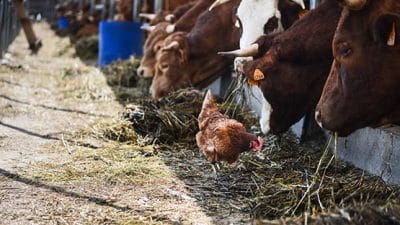
As the winter months approach for Brazil, and just one fifth of the entire population is reported to have been given the first dose of the vaccine, while only 11% is fully-vaccinated, it’s looking likely that the besieged, sprawling country – with one of the highest rates of death per capita since the onset of the pandemic – is heading towards a devastating third wave.
Right-wing president, Jair Bolsonaro, has repeatedly denied the extent of the pandemic on the population’s health across the past year or so, heavily affecting the general attitude of many regarding public and personal safety. The last peak, witnessed in April, saw a daily average of 3,200 deaths; currently, this number stands at 1,600 daily deaths – but epidemiologists state that there are warning signs this is simply a lull.
Attitude problem
Reports claim that the ongoing health catastrophe is a result of the President’s complacency and repeated denials of the extent of the issue.
Not only has Bolsonaro’s focus been predominantly on the economy and promoting ‘business as usual’, but he has also forged ahead with plans for the Copa America football tournament – a 10-nation tournament originally scheduled to take place in Argentine before being cancelled – which has itself encouraged the general population to act as if the pandemic isn’t a threat.
This has been further compounded by the fact that the President and a number of his team have caught Covid and recovered without issue – fueling the idea that the virus is simply a different form of the common cold, despite the rapidly increasing 470,000 death toll. Per capita, this death toll is approximately 200 people per 100,000.
Third wave variants?
Experts state that, due to the fact that the numbers of people catching and dying from the virus haven’t yet returned to early pandemic levels, this oncoming health crisis is not a third wave, but is, in fact, a continuation of the first and second waves.
Amid the speculation surrounding a third wave is the risk posed by variants of the virus, both within the country itself and elsewhere around the world. The Delta variant, for example, has proven to be more easily transmissible, but the data is not yet available to help experts determine whether it is deadlier – and it is this that is proving to be of paramount concern.
Poor economy and prospects
Initially, many residents across Brazil – particularly in the capital city of Rio de Janeiro – felt financially unable to stick to lockdown restrictions, as they were fiscally unstable and had jobs that were reliant on attendance, which is similar to the employment conditions preventing many from adhering to restrictions within India.
As it stood at the time, many felt as though it was impossible to remain home and indulge in the same sorts of activities indulged in elsewhere around the world, including banana bread baking, online games such as those found on Jackpotcitycasino.com/canada, or mindful meditation, as they had more pressing concerns – such as how to feed their families and keep up with financial responsibilities..
However, as time has gone on, there has been mounting criticism against the stoic South American President, who is facing a Senate inquiry regarding his handling of the virus and notable refusal of various vaccine offers.
His nationally televised address regarding the vaccination of the Brazilian population was met with widespread derision in the form of banging pots and pans, signaling their growing mass dissent. Bolsonaro, however, maintains that his refusal to impose lockdown restrictions has aided the 1.2% economic growth in the year’s first quarter – a fact he hopes will bolster support, especially following the 4.1% contraction of Brazil’s economy last year.
There is, nevertheless, some hope on the horizon for the Latin American country yet: in Serrana, a Sao Paulo town, mass vaccination of 95% of the 45,000-strong adult population has elucidated the fact that full immunization can help to reduce Covid-19 deaths by 95% and hospitalizations by 86%, showing that a full rollout of vaccines across the South American country can have a powerful impact.










